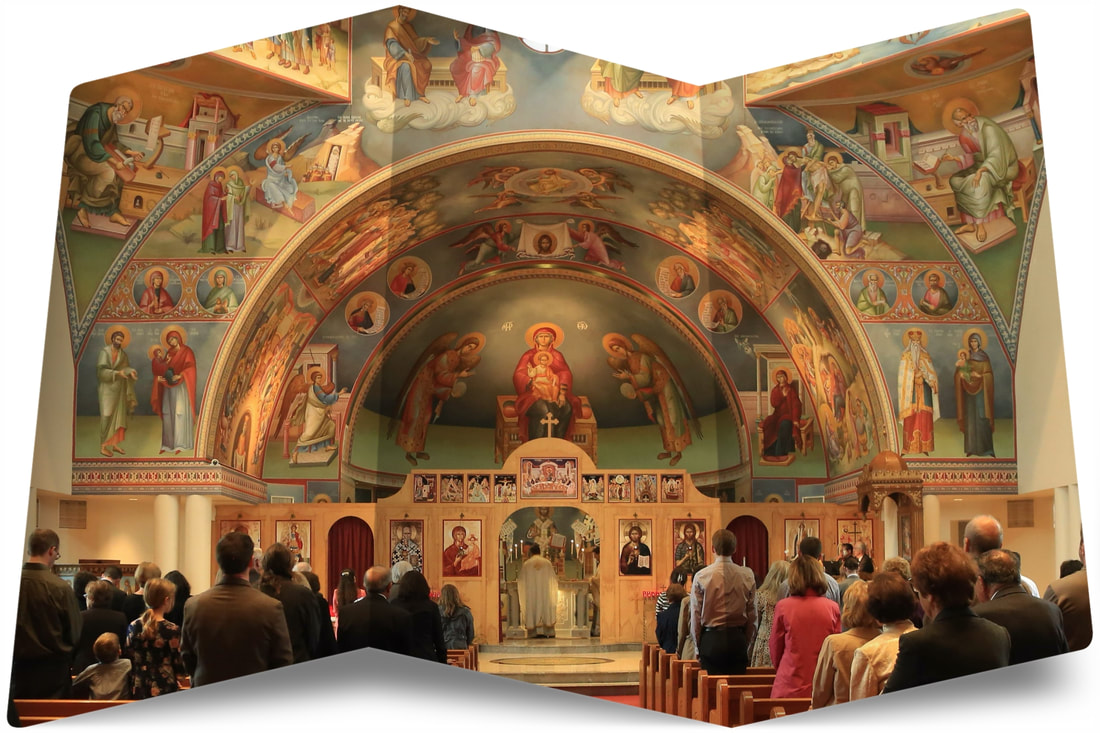|
By Fr. Nick Kotsis - Beloved Brothers and Sisters in Christ, when I was in Thessaloniki in 1999 studying Greek at the Aristotelian University, I used to take a bus from our little village of Paleokastro into the city. The bus would drop off us near the intersection of Lagkada and Via Egnatia. From there it was about a 15-minute walk to the University. I loved that walk. The Via Egnatia is an ancient Roman road. It was built as a continuation of the Via Appia that ran from Rome to Brandisi. The Via Egnatia started at Dyrrachium on the Adriatic and ran across Illyricum to Thessaloniki and eventually all the way to Byzantium (later, Constantinople). As I walked down that road, I kept thinking about all the history that road has carried; all the people over the centuries that have walked the same road I was now on. On the way to the University I would pass by the ancient agora and Roman forum. I could see the well-maintained ruins below as we walked by (cities are built on top of cities over the years, so the ancient parts of the city are at a lower level than the modern city). On the way, I would usually stop at a kiosk, a periptero, to buy something to drink before class (I always stopped at a bakery to get a piece of bougatsa as I mentioned in a previous story). Those kiosks are something else. Snacks, drinks, newspapers, magazines, phone cards, camera film, batteries, school supplies, toiletries, etc., are all sold at these kiosks. They always seemed to have everything I ever needed. One day on the way back from class, I decided to stop by a little kafeneio for a frappe. I had been walking around the city for a while, and I found a little café and stopped in. It was off one of the main arteries and tucked into an arcade. As usual, I was dressed in black pants and a white, collared shirt. I had a backpack with me, my hair was short, and I probably looked like a Mormon missionary to most of the Thessalonians. I entered the café and ordered a coffee using Greek. It was close to 2pm and there weren’t many people in the café. The owner looked at me and seemed surprised that I spoke Greek. He asked me in English: “Are you from America?” “Yes,” I replied in Greek. He must have sniffed me out, gee I wonder how?! “Let’s talk” he said gruffly. The man finished making the coffee and came around to the seating area. The tables were round and small, and two iron chairs with blue seating pads were about each one; they were quite heavy. He waved me over to a table in the rear of the café. He set the frappe down for me, a Greek coffee for himself, then went back towards the front. The kafeneio was not large. It was rectangular and opposite the counter were a number of tables with the chairs. Perhaps there was seating a for about twenty people. He was the only worker there that day. Once he had gotten back to the front of the café, he told everyone in Greek, “Okay, everyone, time to go! Time to go out I have to close!” Everyone dutifully followed his instructions and after the last person left, he locked the door. It was nearly 2pm and around that time many businesses in Greece close for a few hours for the afternoon siesta. He walked back to the rear of the café. He was average height and weight. He had short hair that was thinning in the front running back towards the back of his head. He seemed to be in his early forties. He was clean shaven and wore a crew-neck white tee-shirt, dark pants, and a white apron. A bit muscular, he walked briskly and with purpose to where he had seated me. He actually had a saunter in his walk that reminded me little bit of a Greek George Jefferson… When he arrived at the table, he took off his apron and around his neck, and hanging over his shirt, was a small, silver cross. He stood above me as I sipped the frappe and asked, “Why are you here speaking Greek?” Now, for the reader, please don’t take this as an insulting question; I took at as sheer curiosity. I replied in the best Greek I could, “I’m here to study Greek.” “Why?” “I want to become a priest and I need to learn Greek.” “Oh, you’re Orthodox?” “Yes.” “Oh, good. I though you were an evangelical!” And he let out a hearty laugh. I was correct in thinking people would assume I was a Mormon! He hanged his apron over the chair opposite me. He reached into his pants pocket and pulled out a half-crushed packet of cigarettes. He sat down and with a flick of his wrist, a cigarette popped out of the pack. He lighted it and did the same again and offered it to me. “No, thank you.” I replied, moving my right hand in a gesture of “no” or “stop.” “Come on, vre (man), have one.” He was putting on the pressure. “No, really, thank you. I…” “What’s the matter with you Americans…” and then he went off in Greek with certain, choice words that I did know. It’s funny how when one is learning a language, it does not take long to master the words not to be used in polite discourse. Thus, having been emasculated, I thought it polite and confidence-building to join him. He reached over the table to light mine, and as he did so, he sprang the first question: “So, why do you love Clinton?” I choked and hacked at that question just as I was taking in the first drag, being surprised at the boldness of the first question in the conversation. This conversation took place with him speaking English, for his practice, and me speaking Greek for my practice. “Wha…Wha…What do you mean?” I said between coughs and laughs. He smiled, wryly and asked again, “Why do you love Clinton in America? He bombed the Serbians. What did they do to you? They are Orthodox like we are.” It was only a few months prior that NATO, led by the United States, bombed Serbia. Greece had to participate as a NATO partner, though the population was very much against it. Thessaloniki was one of the major ports used to bring in NATO weapons, supplies and personnel, and the population of Thessaloniki was very much against the whole matter. For years, any time political discussions came up outside my immediate family, I usually remained pretty quiet. I made a pathetic attempt to avoid a personal answer. “You know,” I began, “Not everyone in America is in favor of this war. Most people in America know nothing about what is happening in the Balkans. The way…” I couldn’t finish my next sentence when he interrupted, with a triumphal “gotcha” in his voice, “It’s because of that Monica, isn’t it?” Again, I started to laugh. This dude was really bold. I made a miserable attempt at an answer based only the lines we in America were receiving, “Well, Madeline Albright…” and I couldn’t finish the sentence again when he interrupted again, “Ah, ta, ta, ta, ta, ta, ta, come on now, let’s be real. Why do you think Clinton really bombed the Serbs?” At this point, I figured he’s all in, I might as well do the same. For the next two hours we sat and spoke about politics, life in Greece, life in America, our families, his wife and kids, history, all sorts of interesting subjects. Sometimes we agreed, often, we didn’t. I enjoyed speaking with this man immensely, and after I opened up, I think he thought similarly about me. At the end of the discussion, I noticed that neither of us had ever taken another puff from the cigarettes. I asked him, “If we didn’t really smoke these, why did you insist on offering?” He thought for a moment, leaned over the table towards me, smiled and said, “I was just testing you, you know, when in Rome do as the Romans do. I wanted to see if you would do as we do here in Greece. Besides, I think all the best conversations in the history have taken place around a fire. You come back tomorrow at the same time and we’ll continue our talk.” We shook hands, smiled, and I left. I came back the next day. And the next. And the next. For nearly the entire rest of the trip I visited this man in his kafeneio. I usually came around 2pm and he always closed the shop when I came in, in the same manner he did that first day I arrived. I insisted on paying for the coffees, but he offered a deal. He said, after a heated argument, I must take a free one every other day for the sake of hospitality and honor. Besides, he said, I was helping him with his English. I told him he was doing the same with my Greek, but he insisted. So, I took a very good deal. His name was Dimitrios (go figure, in Thessaloniki!), but I cannot remember his last name… I think of that conversation often when I think of “boldness.” Here was a man who didn’t know me from Adam, closed his shop, gave me free coffees, and got right into discussions about personal issues. At the same time, he was respectful and pleasant and truly wanted to hear what I had say. There is something about boldness that we must have as Orthodox Christians. When we are about to recite the Lord’s Prayer during the Divine Liturgy, the priest says, “And grant us, Master, with boldness and without the fear of condemnation, to dare call You, the heavenly God, Father, and to say…Our Father…” We are actually praying that we have the boldness to stand before the Lord. We are praying for the boldness to declare our faith in Him, to expect His Kingdom, to follow His will, to forgive others, to follow Him away from temptation, and to allow Him to deliver us from evil. We are praying for the boldness to approach the Holy Body and Blood of our Lord and Savior Jesus Christ and to receive Him bodily. There is a time for boldness in before the Lord. My beloved brothers and sisters in Christ, there is a boldness that will once again be required of us. As we move slowly back into a period of the re-opening of our society, will we be able to approach, once again, the awesome, sacred, and life-giving mysteries of Christ with boldness, or will it be fear that grips our hearts? I hope and pray that as we will open things as appropriately and as wisely as possible, it is not fear that moves and drives us. Instead, I hope and pray that boldness, confidence, love, and faith are what will move us back into the holy sanctuary of Christ. God bless, Fr. Nick Comments are closed.
|
AuthorsMessages written by the clergy of our parish. Archives
May 2021
Categories
All
|
© 2023
Saint Nicholas Greek Orthodox Church
3109 Scio Church Road, Ann Arbor, MI 48103
Phone: (734) 332-8200
Fax: (734) 332-8201
Saint Nicholas Greek Orthodox Church
3109 Scio Church Road, Ann Arbor, MI 48103
Phone: (734) 332-8200
Fax: (734) 332-8201


 RSS Feed
RSS Feed
